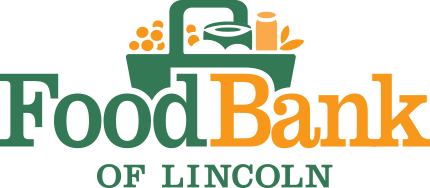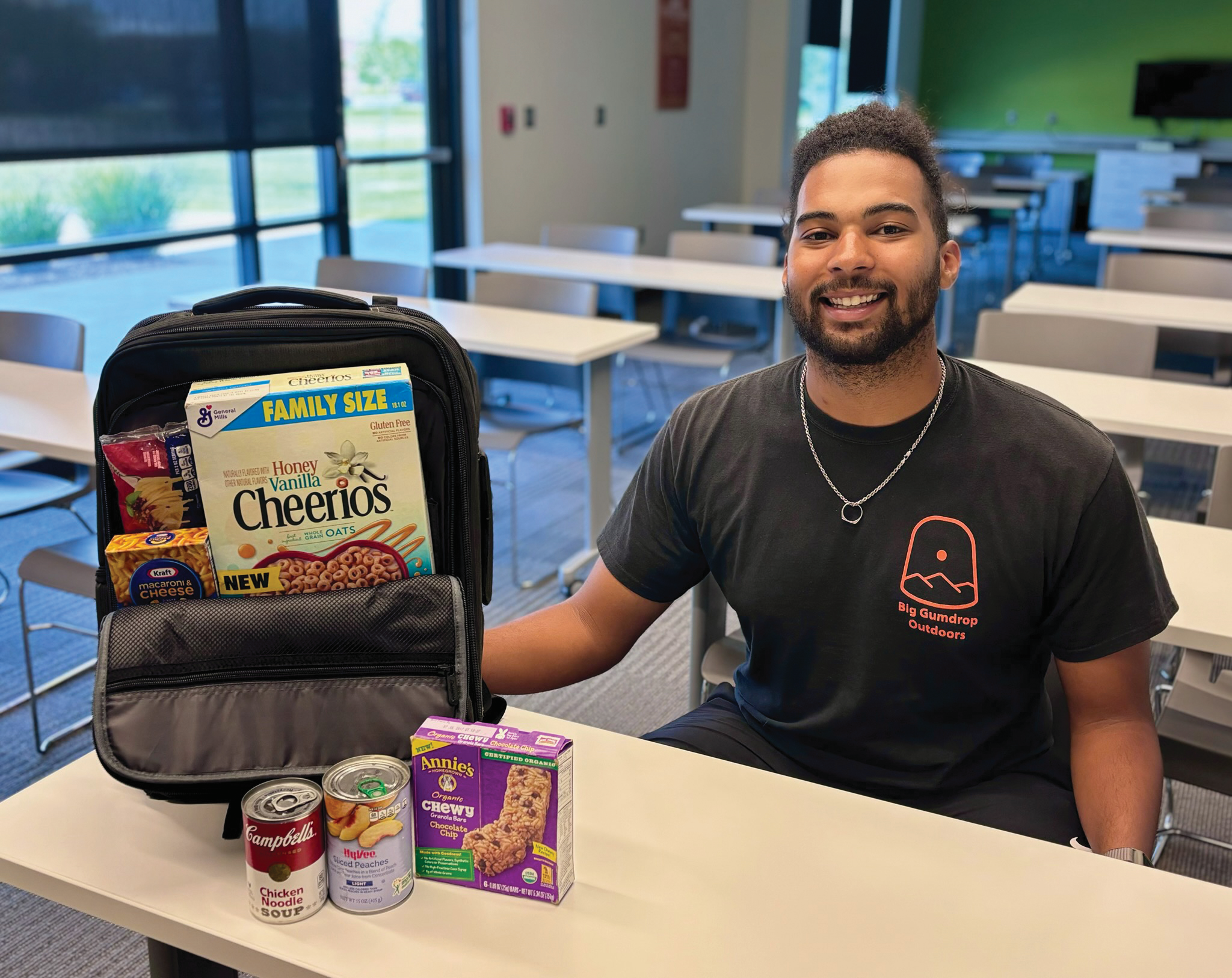BackPack Program: Fueling Futures
August 8, 2024
As the final school bell of the week rang, Elijah would head to the basement level of Randolph Elementary School. There he’d be greeted by a row of food-filled backpacks, nestled between the computer lab and music room. Elijah would grab one and head home, eager to see what was inside.
Most weeks he’d go straight to his bedroom to explore the contents of this “goody bag,” searching for the “prize picks” like granola bars, snack items and his favorite—cereal. Cinnamon Toast Crunch, Cheerios and Froot Loops, to be exact (because you can enjoy them dry).
Items like pasta were less familiar to the 7-year-old, who would give the dry noodles and other remaining foods to his mom. She’d know how to cook them.
“She’d end up making spaghetti by the end of the week, but at the time, I wasn’t putting two-and-two together that she was using the BackPack noodles for that,” Elijah recalls.
Even at a young age, Elijah understood that the BackPack Program’s impact extended beyond his own dinner table.
“I had friends in elementary school who also got backpacks, but one in particular comes to mind. My friend, his dad and his older sister lived in their car for a long time, and the backpacks were something they used to survive,” he explained. “My mom and I started having conversations and realized how many other people in Lincoln were without food or in vulnerable spots. That was eye-opening to me.”
This awareness stayed with Elijah as he transitioned to Lefler Middle School and later to Lincoln High School—where he moved from the BackPack Program to the School Food Market model. Through a monthly distribution in the school, students, their families and staff shop the market, selecting food items they want. Elijah’s strategy was to take a little bit of everything (though his favorites now were bread, pastries and snack items), knowing that even if it wasn’t something he wanted, it would be helpful to his family.
Unlike elementary school, Elijah noticed that his fellow high schoolers didn’t wait until they got home to take inventory.
“I think of everyone outside of the school after the Food Market, going through their bags—looking for whatever they wanted to eat. Some people would trade to get different items.”
Elijah always dreamt of joining the NFL, but those hopes were sidelined because of injuries during his time on the Links football team. Fortunately, his interests and hobbies were diverse. He was involved in YMCA sports, karate, a theater production where he played Prince Charming, the African American Caucus and Young Men’s Business Leadership groups. He also held part-time jobs.
Yet it was his core passion for the outdoors that inspired his next move: launching a YouTube channel in 2019 called Big Gumdrop Outdoors that documented his hunting and fishing experiences.
“I saw a lack of representation for minorities in the outdoor space. In everything I was watching, people looked the same. I wanted to let other kids that came from similar backgrounds as me to feel confident and comfortable to go outdoors or wherever their heart may want them to go.”
Four years later, during a study abroad trip, Elijah was challenged to use his YouTube exposure for greater impact.
This fall, Elijah will begin his final year at the University of Nebraska-Lincoln. While finishing his degrees in agriculture and environmental sciences communications (major) and entrepreneurship (minor), the 21-year-old founder and executive director will strive to grow Big Gumdrop Outdoors. What began as a YouTube channel has evolved into one of Lincoln’s newest nonprofit organizations dedicated to educating urban youth about nature and inspiring them to explore the great outdoors.
By offering summer camps, community events and after-school programs for Lincoln’s youth, Big Gumdrop Outdoors is committed to giving kids experiential learning opportunities outdoors. His students build campfires and tents, fish, practice conservation storytelling, learn plant identification, ecosystems, and more.
As the BackPack Program celebrates 20 years of serving students this fall, Elijah and his team will also be dedicated to helping kids. Through programs at six schools, this new nonprofit will be equipping the next generation of learners with fuel for the future
“I think having that consistency (of Child Hunger Programs) helped my mom and my family because we knew there was going to be food,” he reflects, 14 years later. “It added a layer of security that I was unaware of at the time but ended up affecting me.”



